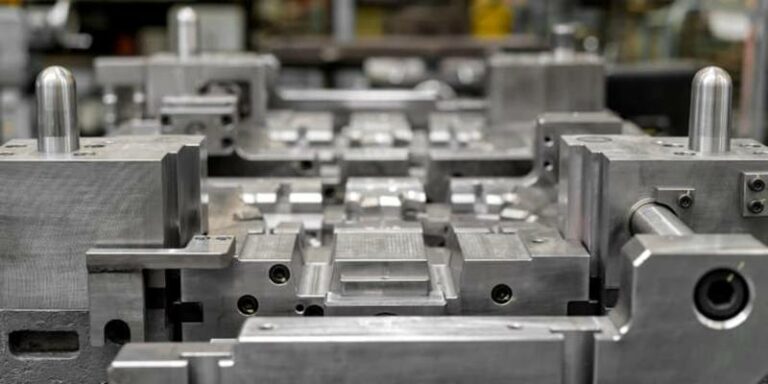About Stahl Specialty Company
About Stahl Specialty Company
Blog Article
How Stahl Specialty Company can Save You Time, Stress, and Money.
Table of ContentsOur Stahl Specialty Company PDFsThe Ultimate Guide To Stahl Specialty CompanySome Known Incorrect Statements About Stahl Specialty Company Excitement About Stahl Specialty CompanyStahl Specialty Company Fundamentals Explained
Chemical Contrast of Cast Light weight aluminum Alloys Silicon promotes castability by lowering the alloy's melting temperature and boosting fluidity during casting. In addition, silicon contributes to the alloy's strength and put on resistance, making it important in applications where sturdiness is important, such as automotive components and engine elements.It additionally enhances the machinability of the alloy, making it less complicated to process right into finished products. In this means, iron adds to the general workability of aluminum alloys. Copper increases electric conductivity, making it advantageous in electrical applications. It likewise boosts rust resistance and contributes to the alloy's total toughness.
Manganese adds to the toughness of light weight aluminum alloys and enhances workability. It is commonly made use of in functioned light weight aluminum items like sheets, extrusions, and accounts. The existence of manganese help in the alloy's formability and resistance to fracturing throughout fabrication processes. Magnesium is a lightweight aspect that offers toughness and effect resistance to aluminum alloys.
It enables the production of lightweight components with excellent mechanical residential or commercial properties. Zinc improves the castability of light weight aluminum alloys and aids control the solidification process during spreading. It improves the alloy's stamina and solidity. It is frequently discovered in applications where intricate shapes and fine details are required, such as decorative castings and specific automobile components.
Getting The Stahl Specialty Company To Work
Because aluminum-silicon alloys have great casting homes, high gas residential properties, basic processes, and excellent rust resistance, aluminum-silicon alloys are most commonly made use of in the die-casting sector in the house and abroad. At the exact same time, aluminum-silicon alloys are additionally fairly very early and extensively identified alloys established and used in die-casting. After constant study and improvement, many of the present global mainstream aluminum-silicon alloys have been wrapped up and are nothing even more than A356, A360, A380, ADC12, B390, and A413.
The key thermal conductivity, tensile strength, return stamina, and prolongation vary. Among the above alloys, A356 has the highest thermal conductivity, and A380 and ADC12 have the cheapest.

Stahl Specialty Company for Dummies
In precision spreading, 6063 is well-suited for applications where detailed geometries and top notch surface area finishes are vital. Examples include telecommunication units, where the alloy's exceptional formability allows for smooth and aesthetically pleasing styles while maintaining structural honesty. In the Lights Solutions market, precision-cast 6063 parts develop stylish and effective illumination fixtures that call for intricate shapes and good thermal performance.
(https://my.omsystem.com/members/stahlspecialc)
The A360 exhibits premium elongation, making it suitable for complicated and thin-walled parts. In precision casting applications, A360 is well-suited for markets such as Customer Electronics, Telecommunication, and Power Devices.

In precision casting, aluminum 413 beams in the Customer Electronics and Power Devices industries. This alloy's remarkable rust resistance makes it an excellent choice for outside applications, ensuring resilient, long lasting products in the stated markets.
The Facts About Stahl Specialty Company Uncovered
When you have chosen that the aluminum die casting procedure appropriates for your project, an essential following action is selecting the most appropriate alloy. The light weight aluminum alloy you choose will substantially affect both the spreading procedure and the properties of the last item. As a result of this, you must make your choice thoroughly and take an educated strategy.
Figuring out the most ideal aluminum alloy for your application will certainly indicate considering a vast array of features. These comparative alloy qualities comply with the North American Pass Away Spreading Organization's guidelines, and we have actually separated them into 2 classifications. aluminum metal casting. The initial category addresses alloy qualities that affect the manufacturing procedure. The second covers qualities affecting the properties of the end product.
The alloy you pick for die spreading straight impacts a number of aspects of the spreading procedure, like exactly how very easy the alloy is to work with and if it is susceptible to casting defects. Hot splitting, additionally called solidification fracturing, is a regular die casting issue for light weight aluminum alloys that can lead to internal or surface-level tears or cracks.
The smart Trick of Stahl Specialty Company That Nobody is Discussing
Specific aluminum alloys are a lot more at risk to warm cracking than others, and your option should click reference consider this. Another usual problem discovered in the die casting of light weight aluminum is pass away soldering, which is when the actors adheres to the die wall surfaces and makes ejection challenging. It can damage both the actors and the die, so you need to search for alloys with high anti-soldering homes.
Rust resistance, which is currently a noteworthy quality of light weight aluminum, can differ substantially from alloy to alloy and is an important characteristic to think about depending on the environmental problems your product will be exposed to. Wear resistance is an additional residential property frequently sought in aluminum products and can set apart some alloys.
Report this page